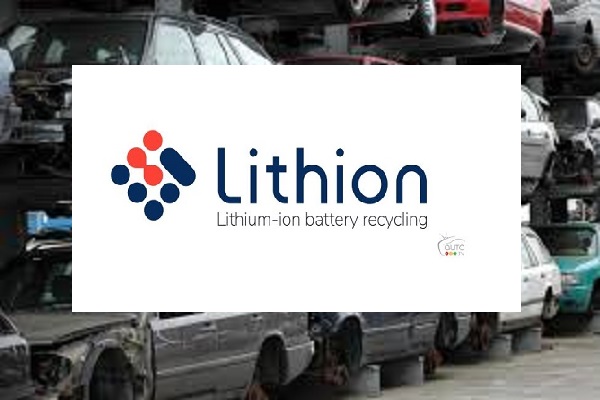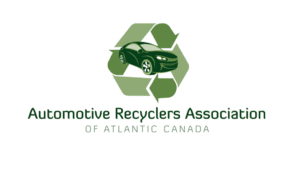Toronto, Ontario –The number of electric vehicles on the road is on a steady rise. With nearly 100,000 electric vehicles in Canada, it’s clear that the future of transportation is green and clean.
However, with the lessening of emissions in the air, there is a new unexpected risk many outside of the auto recycling industry don’t think about.
It’s the risk recyclers face when they are presented with an EV battery.
For most recyclers, dealing with a car battery, although tricky, can be an easily learned task. But when it comes to electric vehicles batteries — created with lithium-ion — the situation is wholly different.
From carrying a risk of releasing toxic gasses if handled improperly to having serious harms on the environment if it’s contents are not contained; many recyclers are well aware of the hazards but unsure of how to approach them.
However, there is hope on the horizon.
A Quebec recycling company, Lithion, has developed a process to recycle 95 percent of the old lithium-ion batteries into new ones. Focusing on clean-tech and cost-efficiency, Jean-Christophe Lambert of Lithion says there was a dire need for this solution.
“Some of our founders realized that there were no clean options to recycle Lithium-Ion batteries, which was a break for some potential EV users,” explained Lambert. “We needed a cleaner solution than burning the batteries, so we developed a process to recycle most of the elements from the battery while reducing significantly the greenhouse gas emissions linked with the recycling process.”
The company’s process enables the recovery of high-value lithium-ion battery components such as cobalt, lithium, and graphite, which can then be directly reused by battery manufacturers.
Most lithium-ion batteries currently recovered and diverted from landfill sites are handled using processes that have an important environmental footprint and a much lower efficiency.
“Our goal is to have final products that meet the specifications of the battery industry, to go back where they came from. Full circularity,” said Lambert.
“Our process takes the full battery, either a pack, a module or a cell, and takes it automatically to the size needed for the hydrometallurgical process. This is done with limited human intervention, thus reducing the risk for people, and with the right design to avoid risks to the equipment.”
In addition to Lithion’s efforts to limit risks to the equipment, Lithion believes protecting the recyclers themselves from the risks is crucial in this process.
“At their end-of-life, lithium-ion batteries are considered hazardous waste,” said Lambert. “The reason is simple, these batteries contain a lot of energy and without the protection from the Battery Management System, the risks are higher. Some conditions could get a battery to burn, which could be a risk to [recyclers].”
With these initiatives to keep recyclers and the planet safe, the Sustainable Development Technology Canada (SDTC) foundation announced earlier this year that they would be contributing $3.8 million towards the company to support their safe and sustainable efforts.
“SDTC is proud to support Lithion Recycling Inc.” stated CEO and president Leah Lawrence. “These batteries are essential to the functioning of our electric vehicles, smartphones, and tablets, and finding ways to recycle these batteries will help make Canada a cleaner and healthier place to live.”
Lithion’s team currently operates within Anjou, Quebec. Hoping to develop more than twenty more plants over the next several years across North America and Europe, the company is currently partnering with other large industry players to execute their goals.
For more information, visit lithionrecycling.com























